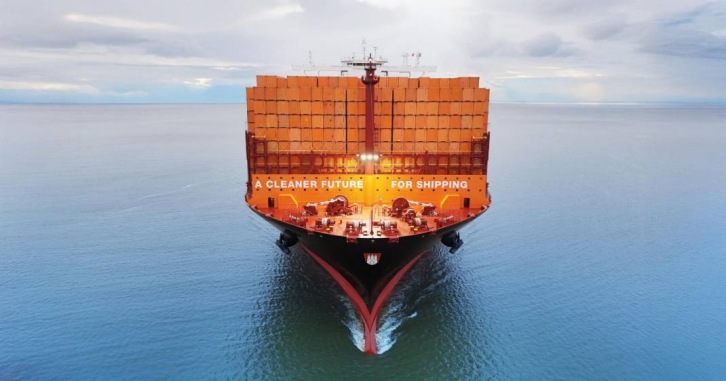
|
26 September 2025
• 3-year framework agreement signed for the reduction of Scope 3 emissions
• 25,000 tons CO2e emission avoidance executed in July 2025
• Use of second-generation biofuels via "book and claim" approach
|
|
As part of this agreement, the first order of 25,000 tons CO2e well-to-wake (WTW) emission avoidance was successfully executed in July 2025. The biofuels are second-generation biofuels produced from waste and residue feedstock, demonstrating the companies' unwavering commitment to reducing greenhouse gas emissions.

Image by Hapag-Lloyd
|
|
"The signing of this three-year framework agreement marks a crucial step toward realizing our shared vision of a decarbonized shipping industry," said Casper Ellerbaek, Head of Global Ocean Freight at DHL Global Forwarding. "We are thrilled to partner with Hapag-Lloyd in driving the adoption of sustainable marine fuels and the book and claim mechanism, ultimately empowering our customers to achieve their climate goals."
The agreement showcases the effective application of the "book and claim" chain of custody mechanism, enabling customers to claim Scope 3 emission reduction for their transport separately from the physical use of the fuel. By decoupling decarbonization from the physical transportation, sustainable marine fuel enabled by book and claim emerges as a vital tool to drive early action in the shipping industry, particularly given that the supply of sustainable marine fuels is currently limited globally and of higher cost.
Both companies are committed to ambitious decarbonization targets, with Hapag-Lloyd aiming to achieve net-zero fleet emissions by 2045 and DHL striving to reach net-zero emissions by 2050. Offering sustainable logistic solutions to customers is a key lever to achieve these goals.
Hapag-Lloyd has been deploying second-generation biofuels since 2020. Since 2023, it has been offering its customers the possibility to claim the resulting emission avoidance through "Ship Green," its emission-reduced ocean transport product utilizing biofuel blends instead of traditional fossil marine fuel oil (MFO).
DHL's GoGreen Plus products provide decarbonized solutions across DHL's core offerings by leveraging sustainable fuels and low carbon technology. GoGreen Plus products are based on true value chain decarbonization, enabled by the ‘book & claim' approach. GoGreen Plus allows customers to reduce their indirect Scope 3 emissions in their value chain arising from upstream and downstream transportation and distribution. It also helps customers with voluntary reporting of greenhouse gas (GHG) emissions and progress against their decarbonization targets.
By working together and leveraging book and claim and sustainable marine fuels, DHL and Hapag-Lloyd are driving the industry's transition toward a more sustainable future.
About Hapag-Lloyd
With a fleet of 313 modern container ships and a total transport capacity of 2.5 million TEU, Hapag-Lloyd is one of the world's leading liner shipping companies. In the Liner Shipping segment, the Company has around 14,000 employees and 400 offices in 140 countries. Hapag-Lloyd has a container capacity of 3.7 million TEU – including one of the largest and most modern fleets of reefer containers. A total of 133 liner services worldwide ensure fast and reliable connections between more than 600 ports on all the continents. In the Terminal & Infrastructure segment, Hapag-Lloyd has equity stakes in 21 terminals in Europe, Latin America, the United States, India and North Africa. Around 3,000 employees are assigned to the Terminal & Infrastructure segment and provide complementary logistics services at selected locations in addition to the terminal activities.
About DHL
DHL is the leading global brand in the logistics industry. Our DHL divisions offer an unrivalled portfolio of logistics services ranging from national and international parcel delivery, e-commerce shipping and fulfillment solutions, international express, road, air and ocean transport to industrial supply chain management. With approximately 400,000 employees in more than 220 countries and territories worldwide, DHL connects people and businesses securely and reliably, enabling global sustainable trade flows. With specialized solutions for growth markets and industries including technology, life sciences and healthcare, engineering, manufacturing & energy, auto-mobility and retail, DHL is decisively positioned as "The logistics company for the world"
DHL is part of DHL Group. The Group generated revenues of approximately 84.2 billion euros in 2024. With sustainable business practices and a commitment to society and the environment, the Group makes a positive contribution to the world. DHL Group aims to achieve net-zero emissions logistics by 2050.
Hapag-Lloyd press release
